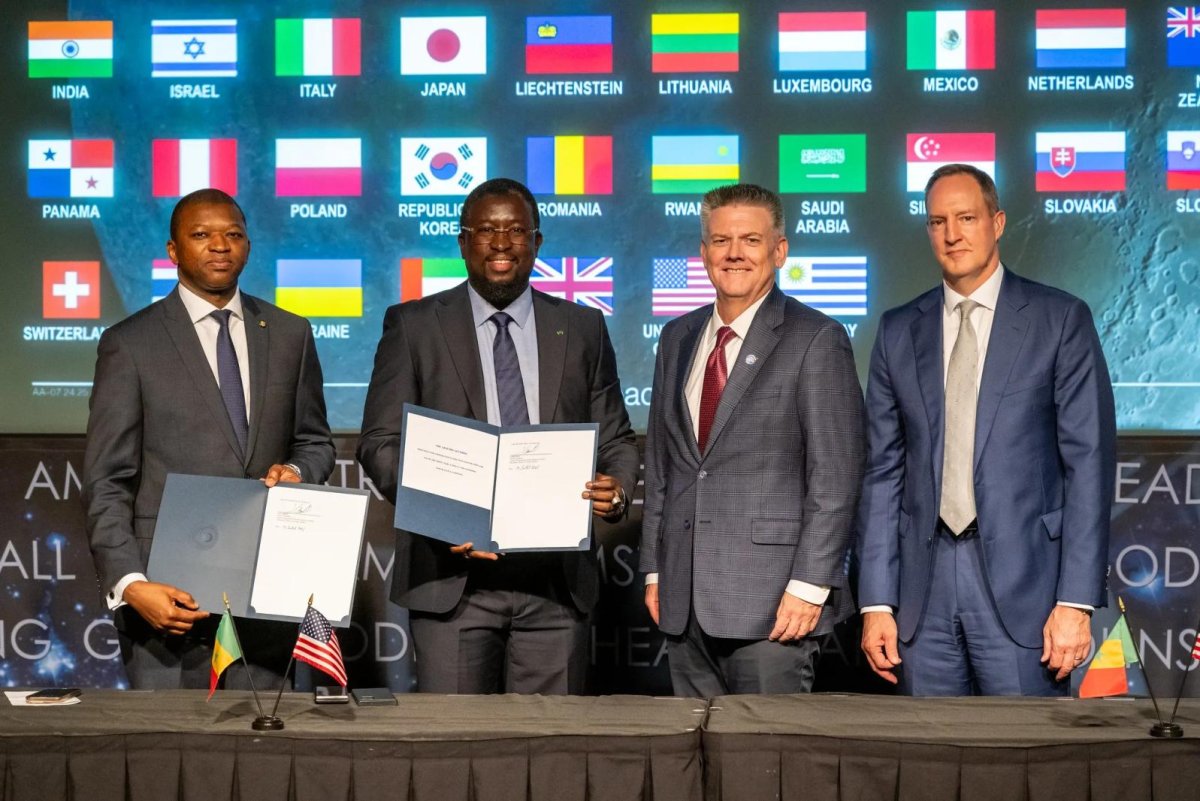From left, Ambassador of Senegal to the United States Abdoul Wahab Haidara, Director General of the Senegalese space agency Maram Kairé, NASA Chief of Staff Brian Hughes and Department of State Bureau of African Affairs Senior Bureau Official Jonathan Pratt pose for a photo during an Artemis Accords signing ceremony Thursday at the Mary W. Jackson NASA Headquarters building in Washington. Photo by Keegan Barber/NASA
July 25 (UPI) — Senegal has become the 56th country to sign the Artemis Accords for peaceful space exploration, NASA announced Friday.
Signing the Artemis Accords means to explore peaceably and transparently, to render aid to those in need, to ensure unrestricted access to scientific data that all of humanity can learn from, to ensure activities do not interfere with those of others, to preserve historically significant sites and artifacts, and to develop best practices for how to conduct space exploration activities for the benefit of all, a NASA press release said.
“Today, NASA built upon the strong relations between our two nations as the Senegalese Agency for Space Studies signed the Artemis Accords,” acting NASA Administrator Sean Duffy said.
Director General of the Senegalese space agency Maram Kairé signed the accords on behalf of Senegal. Jonathan Pratt, senior bureau official for African Affairs at the U.S. State Department, and Abdoul Wahab Haidara, ambassador of Senegal to the United States, also participated in the event.
“Senegal’s adherence to the Artemis Accords reflects our commitment to a multilateral, responsible, and transparent approach to space,” Kairé said. “This signature marks a meaningful step in our space diplomacy and in our ambition to contribute to the peaceful exploration of outer space.”
Astronomers from Senegal have supported NASA missions by participating in multiple observations when asteroids or planets pass in front of stars, casting shadows on Earth.
In 2021, NASA also collaborated with Kairé and a group of astronomers for a ground observation campaign in Senegal. As the asteroid Orus passed in front of a star, they positioned telescopes along the path of the asteroid’s shadow to estimate its shape and size. NASA’s Lucy spacecraft will approach Orus in 2028, as part of its mission to explore Jupiter’s Trojan asteroids.
More countries are expected to sign the Artemis Accords in the months and years ahead, as NASA continues its work to establish a safe, peaceful and prosperous future in space, the release said.
